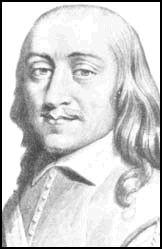Thomas Rainsborough
|
Colonel Thomas Rainsborough |
|
|---|---|
 |
|
| Born |
6 July 1610 Wapping London, England |
| Died | 29 October 1648 (aged 38) Doncaster, South Yorkshire England |
| Resting place | St. John's Church, Wapping, London |
| Occupation | Parliamentarian, Soldier, Leveller, Politician |
| Known for | Political radicalism Levellers |
Thomas Rainsborough (6 July 1610 – 29 October 1648), or Rainborowe, was a prominent figure in the English Civil War, and was the leading spokesman for the Levellers in the Putney Debates.
He was the son of William Rainsborough, a captain and Vice-Admiral in the Royal Navy, and Ambassador to Morocco (for his services to end white slavery he was offered a baronetcy, which he declined). Before the war, Thomas and his brother, William Rainsborowe, were both involved in an expedition to the Puritan Providence Island colony, off the coast of Nicaragua and the Rainsborough family had previous marriage links to Massachusetts. Thomas Rainsborough was devout in his religious beliefs and was a Fifth Monarchist.
Rainsborough served in the Parliamentary forces during both the first and second English Civil Wars. Originally a naval officer he commanded the Swallow, the Lion and other English naval vessels during the first civil war. By May 1645, he was a Colonel in the New Model Army having raised an infantry regiment. Rainsborough took an active part in the battles at Naseby and Bristol. In 1645 he captured the symbolic stronghold of Berkeley Castle for Parliament before moving to the siege of Oxford, which surrendered the following June. Later in 1646, he helped conclude the Siege of Worcester and was made the city's governor.
In 1648 Rainsborough was moved from the army and given, by Parliament, command of the navy, holding the rank of Vice-Admiral. His appointment was unpopular with both officers and saliors, resulting in a mutiny (and declaration for the King) of six ships on 27 May 1648. In the same year briefly replaced the Royalist sympathiser William Batten as Captain of Deal Castle but was dismissed when the castle also declared for the King. Despite his previous experience, Rainsborough was viewed by the navy as being too radical and having been imposed on them by the army. As a result of the mutiny the Earl of Warwick was appointed Lord High Admiral, with Rainsborough returning to the army. On his return to the army, Rainsborough led the siege and victory at Colchester. From Colchester he was tasked with taking Pontefract Castle and it was during this siege he was killed.
...
Wikipedia
